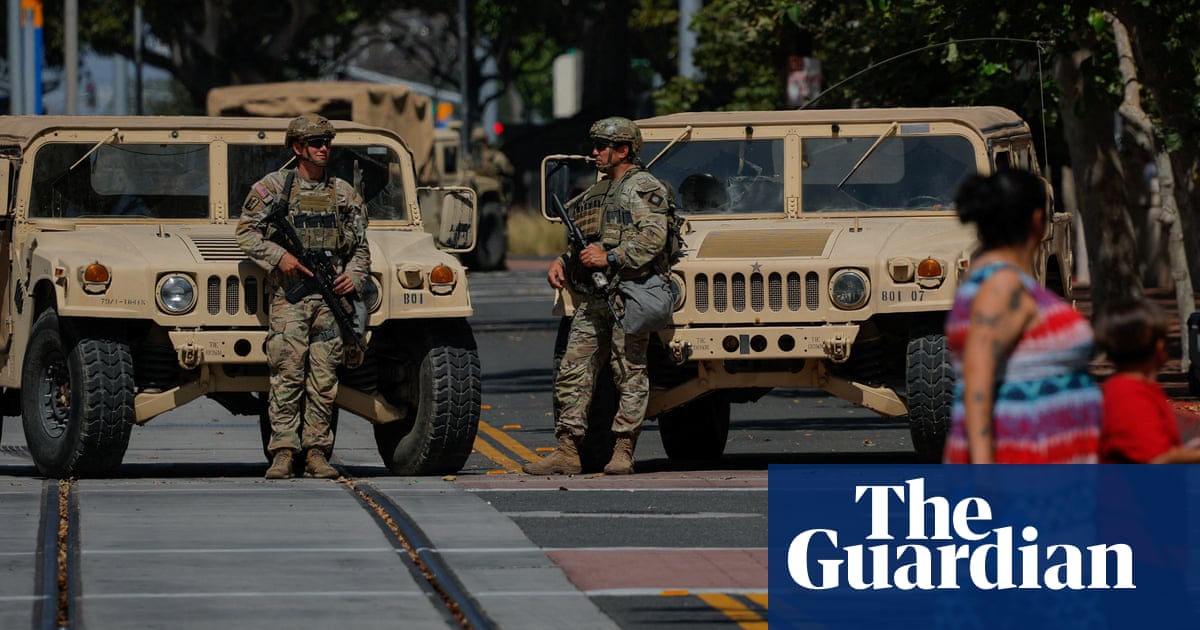Overview of the Legal Battle Over National Guard Control in California
In a contentious legal showdown, a U.S. appeals court has granted former President Donald Trump the authority to maintain control over California’s National Guard amid ongoing protests and unrest in Los Angeles. This ruling comes as the state’s Democratic Governor, Gavin Newsom, challenges the legality of Trump’s deployment of these troops. The complexities of this case, which touches on issues of state sovereignty, presidential power, and the use of military force on civilian soil, have sparked national debate.
The Appeal and Initial Ruling
On June 12, U.S. District Judge Charles Breyer ruled that Trump’s decision to federalize California’s National Guard troops was unlawful. The court found that Trump had not coordinated with Governor Newsom as required by law and cited that the conditions justifying such a move—like an insurrection—were absent. Breyer’s ruling mandated that control of the National Guard be returned to Newsom.
However, within hours of this decision, the 9th U.S. Circuit Court of Appeals in San Francisco placed a temporary hold on Breyer’s ruling. This pause allowed Trump to retain command of the troops while the appeals process unfolded, marking the beginning of a prolonged legal engagement that would further complicate the already fraught relationship between the state and federal government.
The Reasons Behind the Deployment
The backdrop to this legal battle is the turmoil sparked by Trump’s immigration policies. On June 7, Trump authorized the deployment of 4,000 National Guard troops to Los Angeles, a move met with sharp disapproval from Newsom. Alongside these troops, he also dispatched 700 U.S. Marines. The escalation of military presence in the streets of Los Angeles was a dramatic response to widespread protests, but it also raised questions about the appropriateness and justification for such actions in a democratic society.
Legal Criteria for Federalizing National Guard Forces
According to federal law, the President can mobilize state National Guard units under certain conditions: an invasion, a rebellion, or scenarios in which regular armed forces cannot enforce the law. Critics of the deployment argue that the protests did not meet these criteria, asserting that local law enforcement could manage the situation without military intervention. The state’s lawsuit emphasized that the unrest was far from a rebellion, focusing on sporadic violence that did not warrant federal troops’ involvement.
Debates on Executive Authority
During a court hearing, judges from the 9th Circuit, including two appointed by Trump and one by President Biden, engaged in a vigorous discussion about the extent of presidential authority in deploying troops. Legal representatives for both California and the Trump administration articulated contrasting views on the judicial system’s role in reviewing such high-stakes decisions. The Justice Department contended that once the President identifies a legitimate emergency, his determination is beyond judicial review.
Responses from State and Federal Authorities
California’s position hinges on the belief that federal troops participating in local law enforcement violate both state sovereignty and federal laws. The state insists that the situation in Los Angeles did not necessitate military involvement, framing their argument around the ability of law enforcement to handle the protests effectively.
On the other hand, the Trump administration has maintained that troops were not engaged in law enforcement activities. They stated that the National Guard and Marines were there primarily for the protection of federal buildings and personnel, including Immigration and Customs Enforcement (ICE) officers.
The Political Climate and Public Reaction
The decision to use military resources in Los Angeles has not just been a legal issue; it has ignited political tensions across the country. Critics of the move argue that it exemplifies a dangerous precedent for the use of military force domestically, risking the balance of power between state and federal authorities. As protests continued for over a week, eventually tapering off, Los Angeles Mayor Karen Bass lifted a curfew imposed during the unrest, signaling a return to a semblance of normalcy.
This legal and political saga reflects larger tensions in the U.S., where issues of civil rights, governmental authority, and the role of the military in domestic affairs intersect, creating a rich but complex narrative worth watching as it continues to unfold.


